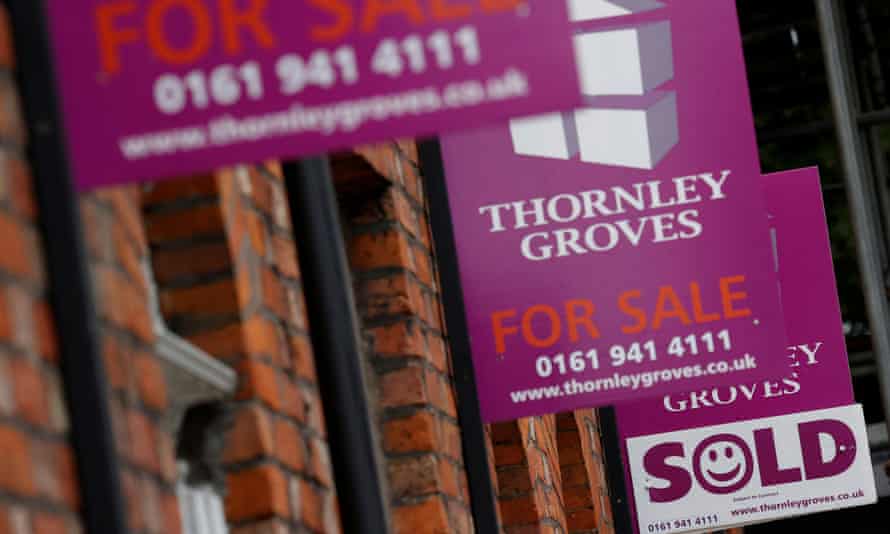UK house prices bounced back in February despite the imminent end of the stamp duty holiday, fuelled by changing housing preferences in the Covid-19 pandemic, and some buyers betting that the tax saving will be extended.
The average price of a home rose by 0.7% to £231,068, the highest on record, more than reversing January’s 0.2% drop, said Nationwide, Britain’s biggest building society. This took the annual growth rate to 6.9% from 6.4%.
A shift to working from home and far less commuting during the pandemic has changed what people want in a property. Many Britons are moving out of big cities to smaller towns or more rural areas, in search of bigger houses, home offices and greener surroundings.
Robert Gardner, the Nationwide chief economist, said: “This increase [in prices] is a surprise. It seemed more likely that annual price growth would soften further ahead of the end of the stamp duty holiday, which prompted many people considering a house move to bring forward their purchase.
“It may be that the stamp duty holiday is still providing some forward momentum, especially given the paucity of properties on the market at present.”
The stamp duty holiday, introduced last summer, offers a total tax saving on properties costing up to £500,000 and a reduction on homes costing more than that. It was due to expire on 31 March but could be extended for three months in Rishi Sunak’s budget on Wednesday.
The chancellor is also expected to unveil a mortgage guarantee scheme that aims to help first-time buyers get their foot on the property ladder. It will incentivise lenders to provide mortgages to first-time buyers, along with current homeowners, with deposits as low as 5% on properties worth up to £600,000. The government will offer lenders the guarantee they need to provide mortgages covering the remaining 95%, with details to be unveiled on Wednesday.
Samuel Tombs, the chief UK economist at Capital Economics, said: “This will not solve the current affordability problem faced by many first-time buyers, which is that most lenders will only calculate mortgage offers based on their current wages, which for many people have fallen by 20% because they have been furloughed.
“The impact of the guarantee scheme on mortgage rates also will rely heavily on the fee the Treasury charges lenders for using the scheme. Nonetheless, our forecast for house prices to drop by about 2% this year now looks too downbeat.”
Gardner said: “The outlook for the housing market is unusually uncertain. There is scope for shifting housing preferences to continue to boost activity, especially if there is further policy support in the budget. Nevertheless, if labour market conditions weaken as most analysts expect, it is likely that the housing market will slow in the months ahead.”


